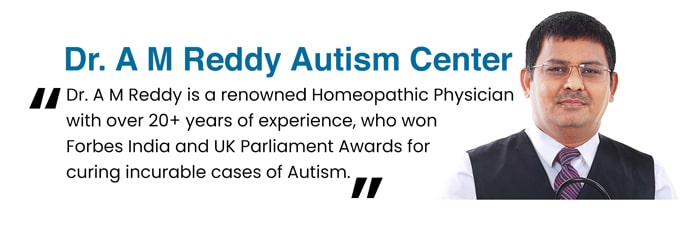Most parents have concern for their children’s future. They hope to raise them and guide them towards a colorful and joyful life. Parents dealing with these youngsters should take extra precautions to ensure that no stone is left unturned. Most individuals lack attention at work and passion in life; if they have ADHD, it may imbalance relationships and careers if left untreated. Go through the blog to get more details about ADHD Syndrome and homeopathy treatment.
What exactly is ADHD?
Attention deficit hyperactivity disorder is familiar by the other name ADHD. A neurological condition impairs your ability to pay attention, sit still, and regulate your behavior. It starts in childhood and may continue throughout maturity.
The most frequent mental condition among youngsters is ADHD. Boys are more prone than girls to get it. It is usually discovered when a youngster begins to have difficulty paying attention in the early school years.
ADHD cannot be avoided or treated. However, early detection and a thorough treatment and education plan can help kids or adults with ADHD manage their symptoms.
Types of ADHD
There are three forms of ADHD, depending on which symptoms are the most severe in the individual:
- Predominantly Inattentive Presentation: The individual finds it difficult to arrange or complete a task, pay attention to details, or follow directions or dialogues. The sufferers are easily deviated and usually forgets the details of daily tasks
- Predominantly Hyperactive-Impulsive Presentation: The individual fidgets and speaks excessively. It is difficult to remain still for an extended period (e.g., for a meal or while doing homework). Kids may prefer to run, jump, or climb frequently. Hence kids may be restless and struggle with emotional issues. Someone impulsive may frequently interrupt others, seize items from others, or talk at inappropriate times. It is difficult for the kids to wait for their turn or follow others’ orders. Impulsive people may have more accidents and injuries than others
- Combined Presentation: The person has symptoms from both of the preceding kinds
Because symptoms might alter over time, the presentation may also shift.
Symptoms and Signs
It is normal for kids to struggle in concentrating and behavior at a certain point in life. Kids with Adhd syndrome, on the other hand, do not simply develop from these behaviors. The symptoms continue, may well be strong, and therefore can cause difficulties in school, home, or with friends.
A youngster who has ADHD Syndrome may show:
- A lot of daydreaming
- Neglect or misplace things move or take frequent breaks
- Unnecessarily, make careless mistakes
- Takes unnecessary risks
- Have difficulty refusing desire have problems taking a turn
- Have a tough time performing along with others
Causes of ADHD Syndrome
Experts are unsure as to what causes ADHD. Various factors may contribute to it, including:
- Genes: ADHD is a characteristic that runs in families
- Chemicals: ADHD individuals brain chemistry may be imbalanced
- The brain evolves: Attention-controlling areas are less active in youngsters with ADHD
- Poor nutrition, infections, smoking, drinking, and intoxicants misuse are risks during pregnancy. These items can have an impact on a baby’s brain development
- Lead, for example, is a toxin: They may impact a child’s brain development
- A brain disorder or damage to the brain: Damage to the brain’s frontal lobe, also known as the prefrontal lobe, can lead to difficulties managing impulses and emotions
Living with ADHD Syndrome
Caring for a child with ADHD may even be difficult, but it’s vital to realize that they can’t control their behavior.
Some of the challenges that may emerge in daily life are as follows:
- How to get your child to sleep at night
- Getting ready for school on time
- listening to and following directions
- Being planned for social events
- Shopping
Adults with ADHD may experience similar concerns, and some may struggle with intoxicants, violence, and jobs.

Risk elements
ADHD risk factors may include:
- Blood relations with ADHD or another mental health issue, such as a parent or sibling
- Toxins in the environment, such as lead, which is commonly found in paint and pipes in older houses
- Maternal intoxicants usage, alcohol consumption, or smoking are prohibited during pregnancy
- Premature childbirth
- Although sugar is a prominent candidate in the cause of hyperactivity, there is no good evidence to support this. Many childhood difficulties might contribute to trouble sustaining attention, but this is not the same as ADHD
Complications
Children with ADHD might have a difficult time in life. ADHD in children:
- Quite often struggle in school, which can lead to academic failure and criticism from other children and adults
- Children with ADHD are more likely to be involved in accidents and injuries of various types than children who do not have ADHD
- People with low self-esteem are more likely to suffer from depression
- They are more likely to experience difficulties engaging with and being accepted by peers and adults
- Are at a higher risk of alcohol and intoxicants misuse, as well as other difficult conduct
Conditions that coexist
ADHD is not associated with any other psychiatric or developmental issues. Children with ADHD, on the other hand, are more prone than others to have disorders such as:
- Oppositional defiant disorder (ODD) is a pattern of negative, uncontrollable, and aggressive conduct toward control levels
- Conduct disorder is characterized by antisocial conduct such as stealing, fighting, damaging property, and causing injury to people or animals
- Disruptive mood dysregulation condition characterized by impatience and difficulties with frustration tolerance
- Learning challenges, such as difficulties reading, writing, understanding, and communicating
- Substance abuse disorders (intoxicants, alcohol, and smoking)
- Anxiety disorders, which include obsessive-compulsive disorder, can cause excessive concern and uneasiness (OCD)
- Mood disorders such as depression and bipolar disorder, which involves both depression and extreme tendencies
- Autism spectrum disorder is a brain development issue that affects how people see and interact with others
- Tic disorder or Tourette syndrome is taken into account by uncontrollable repetitive motions or noises (tics)
Parenting Advice
If you’re a parent of an ADHD child, here’s what you should know:
- Verify that your GP or specialist helps you differentiate between ADHD and any other problems your kid may have
- Consider who else needs to be aware of your child’s ADHD, such as their school or nursery
- Learn about the side effects of any medications your child is taking and what to look out for!
- Getting to know people at local support groups can make you feel less alone and help you manage.
Homeopathy treatment for ADHD Syndrome
We make certain that youngsters with ADHD can do everyday duties independently. You can count on us to deliver the finest consultation possible. There are no single ADHD diagnostic tests. Qualified doctors support psychologists in analyzing and assessing a child’s behavior pattern, cognitive abilities, and development based on the persistence of symptoms, the child’s age, and symptom severity.
We see each child as distinct from the others. Homeopathy practitioners are experts in healing each kid uniquely and typically based on their temperament and presenting symptoms.
If you are worried about your kid’s abnormal behavior, We have assured satisfaction, for more details call us: For India use: +91 7674004000, +91 7337440845 , For USA use: +1347 726 9005 or WhatsApp us (if you belong to any country).
We provide Online Consultation also. Book Prior Appointment for Weekend Consultation.
For More Info, Visit Our Website: Dr. A M Reddy Autism Centre
Note: Online Consultation Available via Zoom/ WhatsApp/ Video Call! 15 days Prior Appointment is Available.

